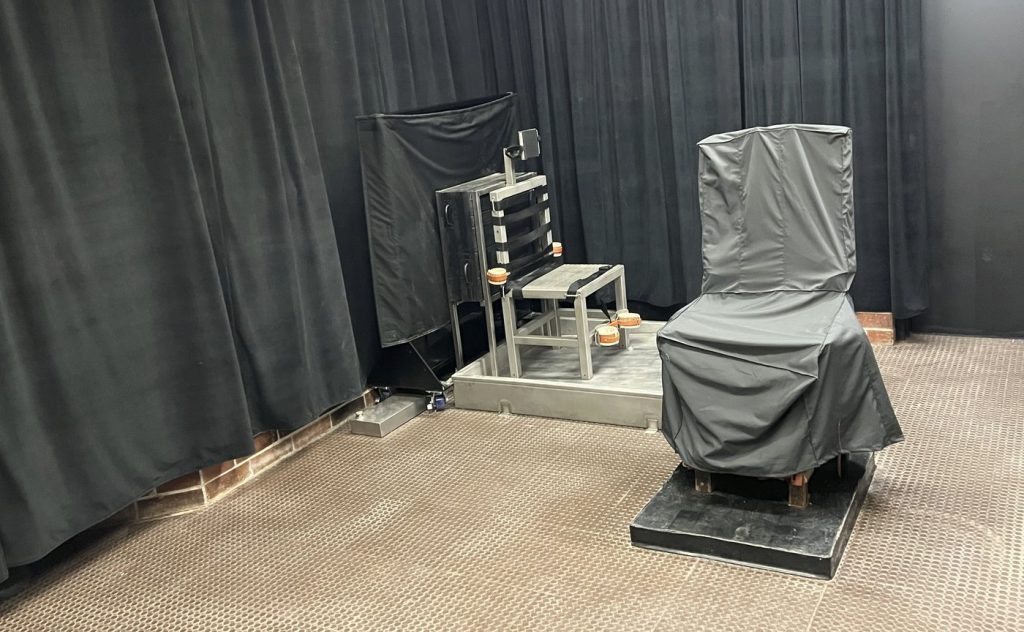COLUMBIA, S.C. (AP) — A firing squad execution, historically linked to political and military justice, is scheduled to take place in South Carolina, marking the state's second such execution in just five weeks. Inmate Mikal Mahdi, aged 42, was sentenced to death 20 years ago after being convicted of the ambush murder of an off-duty police officer, James Myers. Mahdi will become the fifth inmate executed by the state in less than eight months, as South Carolina continues to process inmates who exhausted their appeal options during a prolonged 13-year hiatus on executions.
Mahdi opted for execution by firing squad—specifically, three bullets to the heart—over lethal injection or the electric chair. The previous execution by firing squad in South Carolina occurred on March 7, when Brad Sigmon was executed. This marked the first use of the firing squad in the United States in 15 years, with prior executions predominantly occurring in Utah.
The firing squad execution method carries a long and tumultuous history worldwide, often associated with severe punishment for military offenses, vigilante justice in America's Old West, and as a tool of political oppression in totalitarian regimes like the Soviet Union and Nazi Germany. South Carolina legislators have endorsed it as a more efficient and humane method of execution, particularly amid ongoing challenges related to obtaining lethal injection drugs.
Mahdi's execution will be the 12th in the United States for the year. In total, 25 inmates across nine states faced execution in 2024. Other states, including Alabama and Louisiana, have executed inmates using nitrogen gas, while states like Florida, Oklahoma, Arizona, and Texas have continued to use lethal injection. South Carolina stands apart by utilizing both the firing squad and lethal injection methods.
As the clock approaches 6 p.m. on execution day, the death chamber in Columbia will be prepared to receive Mahdi. Witnesses, numbering fewer than a dozen, will observe from behind bulletproof glass. Mahdi will be secured in a chair with a white square and a red bull's-eye placed over his heart by a physician. If Mahdi has a final statement, his lawyer will be permitted to read it. After this, a prison staff member will place a hood over Mahdi's head and proceed to open the black shade revealing the volunteer executioners stationed ready to carry out the execution.
Without prior warning to witnesses, the shooters will fire high-powered rifles at Mahdi from a distance of approximately 15 feet, ensuring that the bullets will cause lethal damage upon impact. A doctor will subsequently enter the chamber to confirm death within a minute or two after the shooting concludes.
The context of Mahdi's crime underscores the severity of his actions: he confessed to murdering Officer Myers in 2004, shooting him at least eight times before disposing of the body. Additionally, he was linked to the murder of Christopher Boggs, a convenience store clerk, occurring just days prior. Mahdi's crime spree culminated in his arrest in Florida while in possession of Myers' police vehicle.
Despite various court appeals, including a last-ditch effort in front of the South Carolina Supreme Court, Mahdi's appeals have been rejected. His legal team contended that his original defense was inadequate and did not emphasize critical aspects of his life or the conditions he faced in solitary confinement. The state prosecution characterized Mahdi's record as one of persistent violence, citing incidents where he attacked prison staff and attempted escapes.
Moving forward, Mahdi's execution signifies the conclusion of an active period for South Carolina's death chamber. His death will mark the fifth execution conducted since September, after a 13-year moratorium. Although no inmates currently remain eligible for execution, several are approaching the end of their appeal processes. The state reinitiated executions after lawmakers approved the firing squad as an option, along with legislative measures to protect the identities of drug suppliers and execution team personnel.
Currently, South Carolina has 28 inmates awaiting execution on death row, with a notable decline in new sentences over the last decade.










